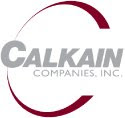 There are times when an investor may want to sell one of his properties and invest its proceeds in another he owns. In the past the IRS forbade 1031 exchanges in such cases, however, today there are means around it. It is known as an “advanced built to suit” transaction and though it has never been explicitly supported by the IRS, it has been upheld by private letter rulings.
There are times when an investor may want to sell one of his properties and invest its proceeds in another he owns. In the past the IRS forbade 1031 exchanges in such cases, however, today there are means around it. It is known as an “advanced built to suit” transaction and though it has never been explicitly supported by the IRS, it has been upheld by private letter rulings. The difference between the advanced build to suit transaction and a typical tax deferred exchange (or one with a build to suit component) is the type of property designated as replacement property. In a build to suit tax exchange, the replacement property is owned by a third party, with Exchange Accommodation Titleholder (EAT) obtaining the replacement property’s title, which it holds while the property undergoes its improvements. In the advanced build to suit transaction, the taxpayer is attempting to transfer funds into property already owned by him. However, Rev. Proc. 2004-51 places restrictions on using replacement property owned by the taxpayer within 6 months of the exchange. Thus, the taxpayer is unable to accept either “assignment of the LLC or direct deeding of the Replacement Property after the improvements have been made directly.”
In order to complete this arrangement, the taxpayer must enter into a 1031 like-kind exchange agreement with a QI, after which he enters into QEAA and Construction Management Agreement with the EAT. He would then send cash or agree to a loan with the EAT, allowing the EAT to purchase replacement property and carryout the improvements. The EAT then acquires title to the replacement property and sets it up in a LLC. The EAT also has authority to appoint a Taxpayer General Contractor under the Construction Management Agreement, who acts as Fund Control, making disbursements as construction commences. After 180 days, the QI will direct the EAT to transfer the replacement property directly to the taxpayer, this is accomplished by handing over control of the LLC to the taxpayer.
If completed correctly, with the right guidance and supervision, this transaction allows investors to greatly improve their own properties and consolidate their holdings. This flexibility can be extremely beneficial during recessions or other economic downtimes, when ancillary properties become less valuable and the need to improve core ones increases. Thus, the advanced built to suit exchange gives investors another tool to use in the marketplace.





No comments:
Post a Comment